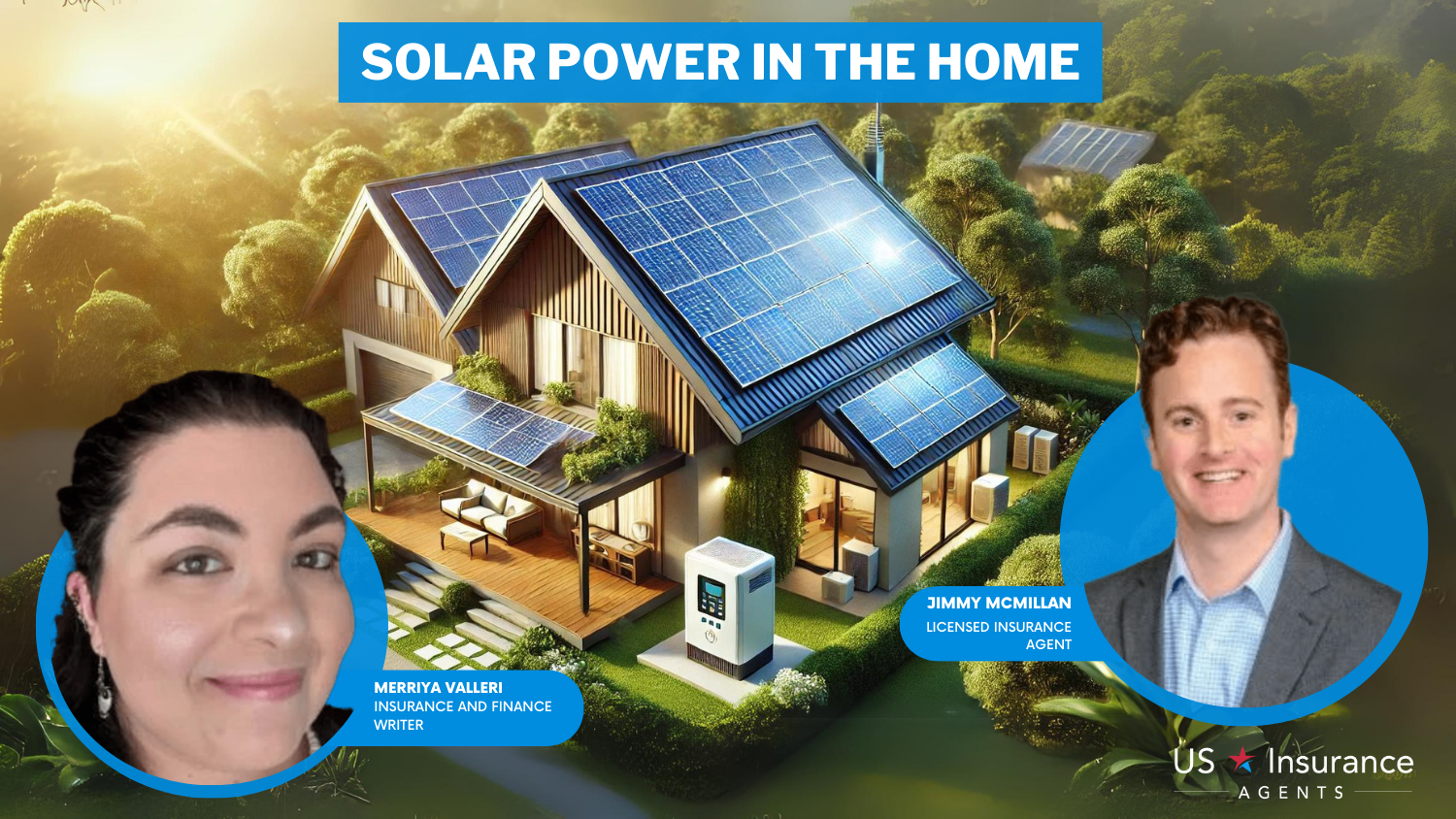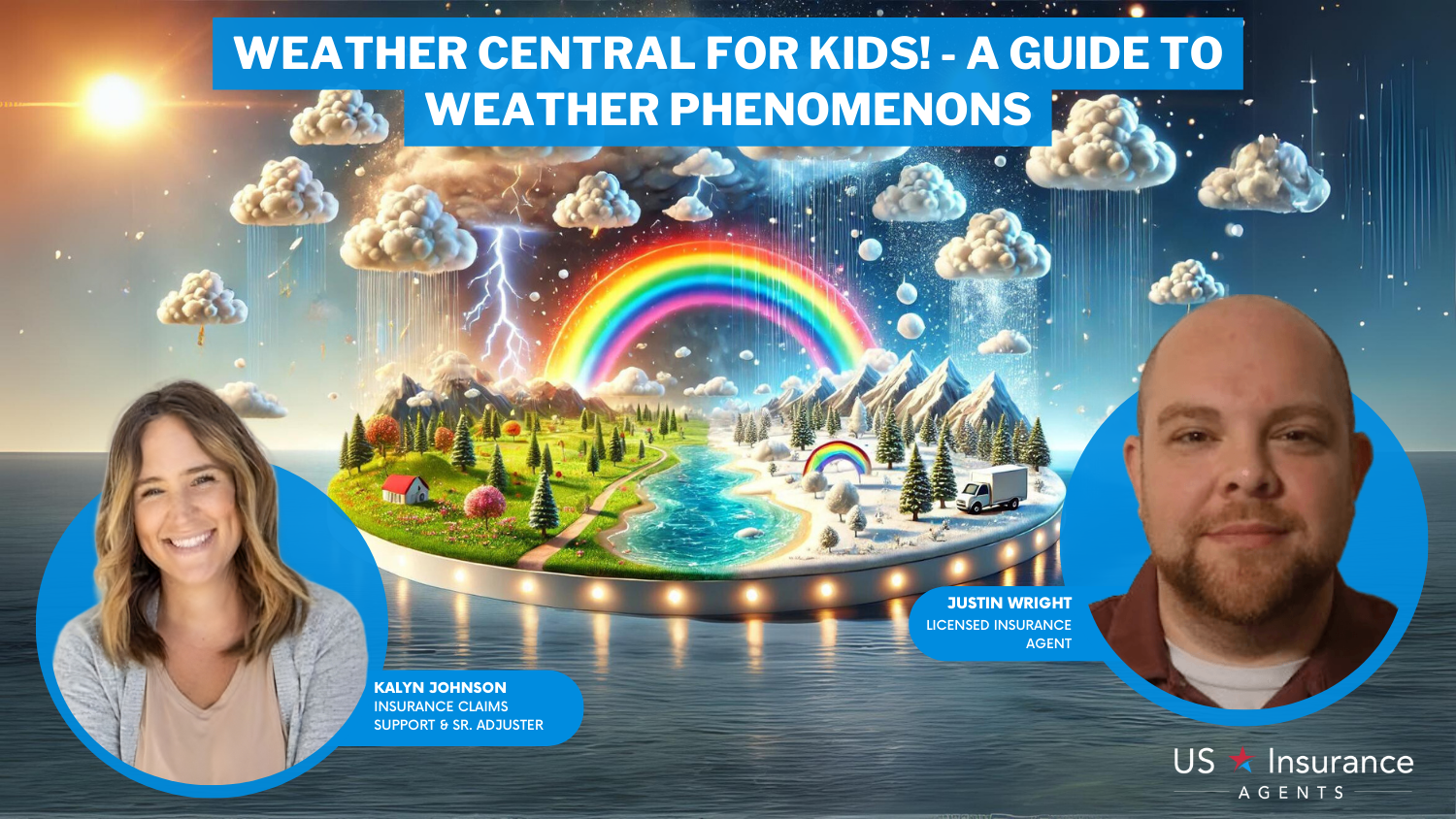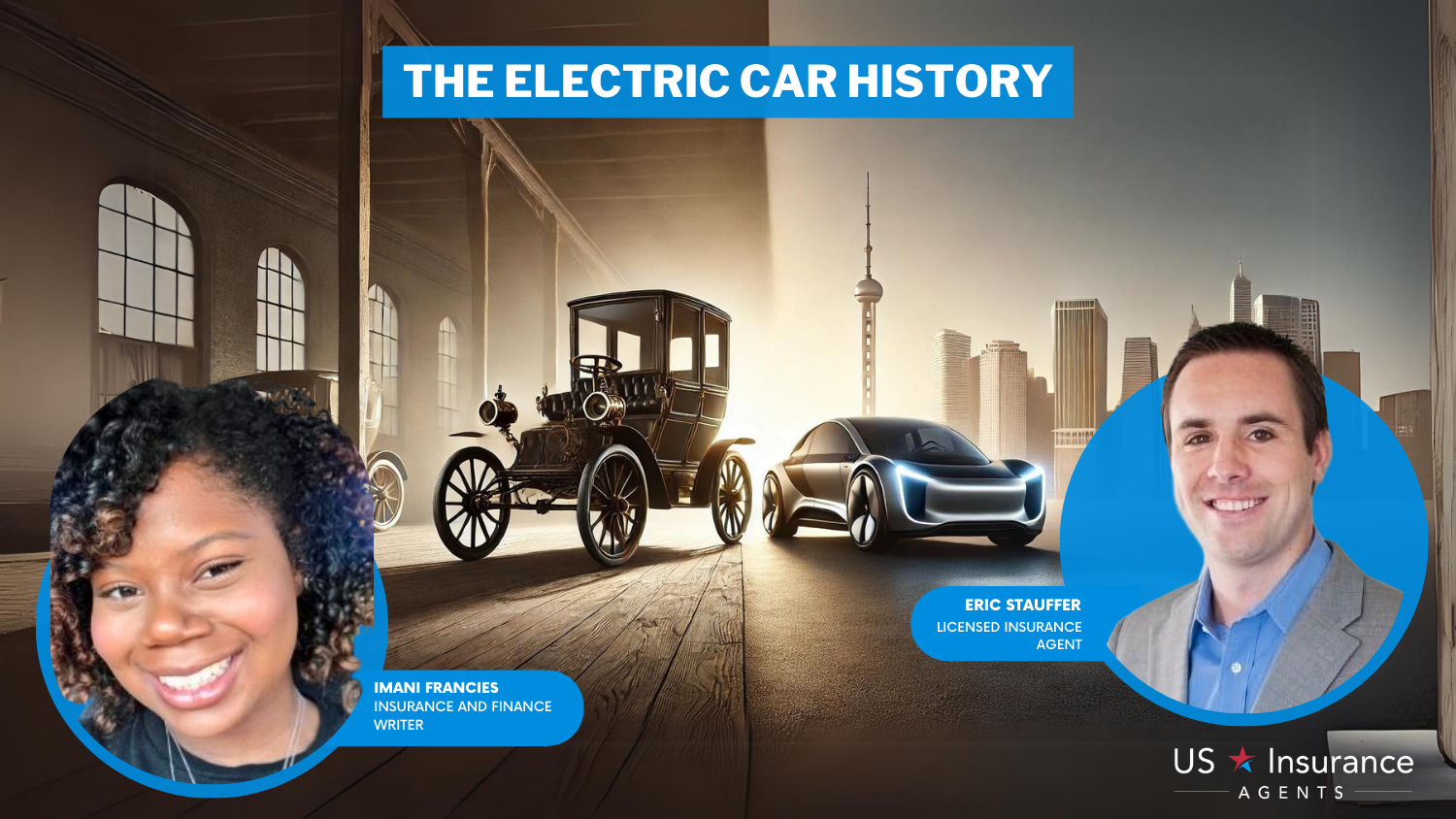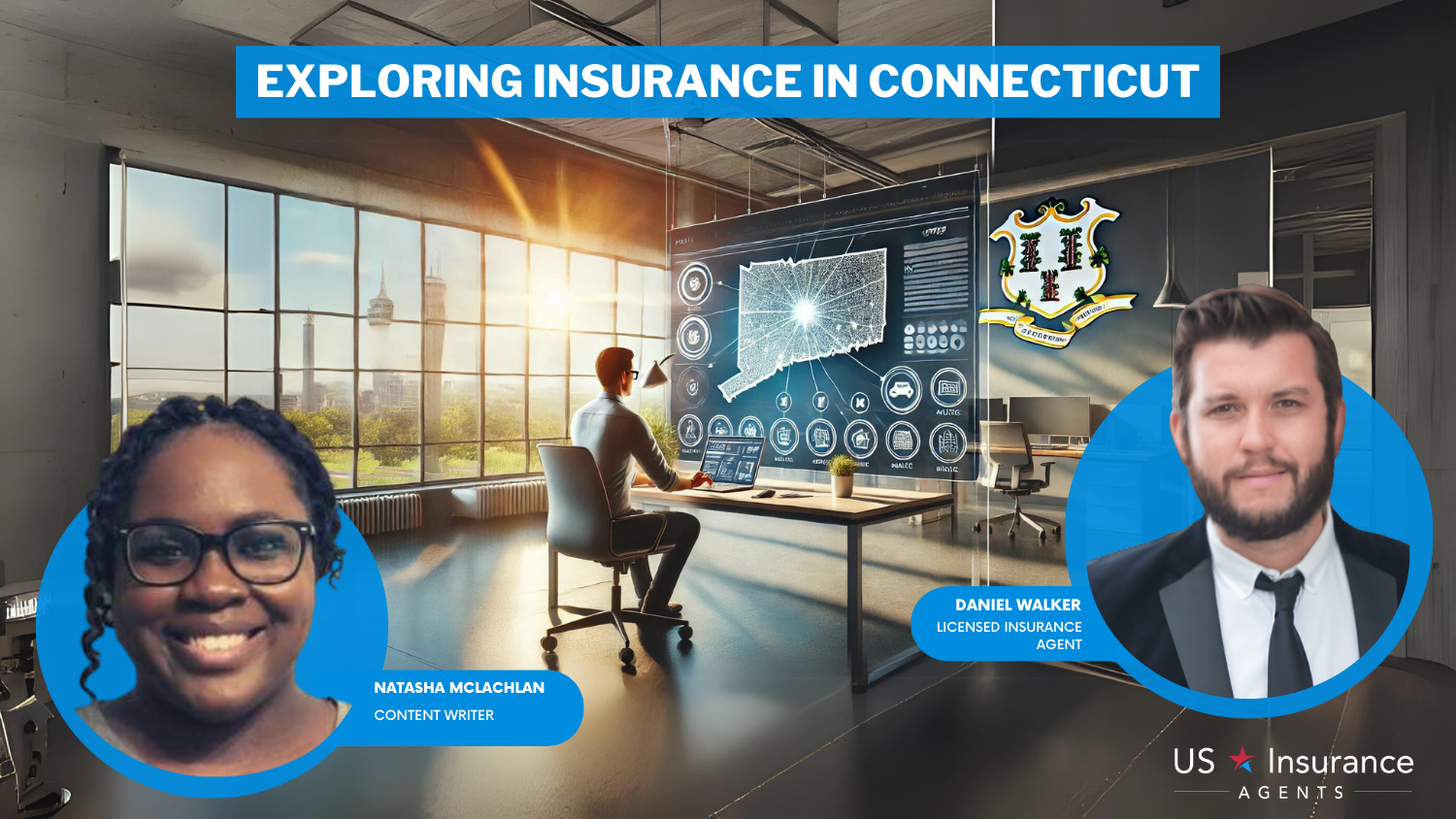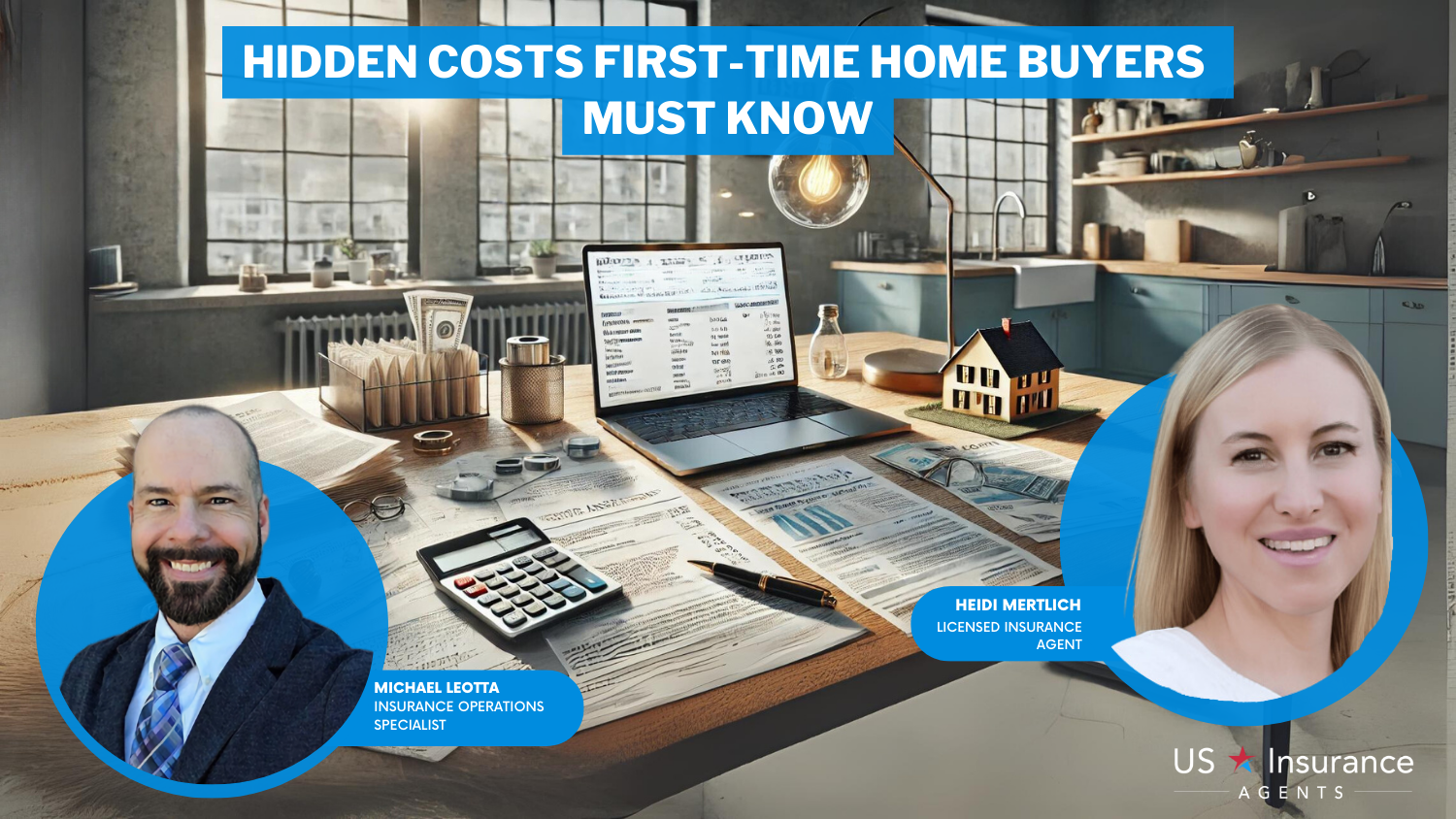Solar Power in the Home
solar power in the home: essential insurance information and coverage options to safeguard your sustainable investment. Protect your solar panels from theft, damage, and unforeseen events. Explore comprehensive policies tailored for renewable energy systems. Gain peace of mind knowing your eco-friendly home is financially protected.
Read more Secured with SHA-256 Encryption





Table of Contents
Table of Contents


Insurance and Finance Writer
Merriya Valleri is a skilled insurance writer with over a decade of professional writing experience. Merriya has a strong desire to make understanding insurance an easy task while providing readers with accurate and up-to-date information. Merriya has written articles focusing on health, life, and auto insurance. She enjoys working in the insurance field, and is constantly learning in order to ...
Merriya Valleri


Sr. Director of Content
Sara Routhier, Senior Director of Content, has professional experience as an educator, SEO specialist, and content marketer. She has over 10 years of experience in the insurance industry. As a researcher, data nerd, writer, and editor, she strives to curate educational, enlightening articles that provide you with the must-know facts and best-kept secrets within the overwhelming world of insurance....
Sara Routhier


Licensed Insurance Agent
Jimmy McMillan is an entrepreneur and the founder of HeartLifeInsurance.com, an independent life insurance brokerage. His company specializes in life insurance for people with heart problems. He knows personally how difficult it is to secure health and life insurance after a heart attack. Jimmy is a licensed insurance agent from coast to coast who has been featured on ValientCEO and the podcast...
Jimmy McMillan
Updated October 2024
Welcome to our comprehensive guide on Solar Power in the Home. In this article, we will delve into the world of renewable energy and discuss everything you need to know about harnessing solar power for your home. With the rising popularity of solar energy, it’s crucial to understand the benefits and considerations associated with this sustainable investment.
Understanding the specific coverage requirements for solar systems can ensure that you have the necessary financial protection in place. We’ll also discuss the claims process and offer tips on maximizing potential rebates and incentives for solar homeowners. Making the switch to solar power is not only a responsible choice for the environment, but it also has long-term financial benefits.
Solar Power versus Fossil Fuels
Fossil fuels must be mined, transported, refined, and burned. Each step along the way can have a negative impact on our health and the environment, and the fuel cannot be reused. This means that there is a continuing demand for these limited resources. Even with stricter regulation, the industry still takes its toll on mother earth.
In contrast, while solar panels also require a process of mining and processing the materials to make them into panels, they can be used continuously for years to come and they convert energy from one of the most abundant renewable resources that we have – the sun! Unlike fossil fuels, solar is not a one-time-use-only source of electricity.
To learn more about the difference between solar and fossil fuels, visit:
- US Energy Information Administration: Nonrenewable Energy Explained
- Stanford: Solar vs. Traditional Energy in Homes
- Columbia: Best Practices in Photovoltaics
Free Home Insurance Comparison
Compare Quotes From Top Companies and Save
Secured with SHA-256 Encryption
Other Green Technologies
Today, we have an abundance of clean energy options to choose. Depending on your location and climate, you may benefit more from grid-connected solar panels, off the grid solar, or small wind turbines for the home. If you have a source of running water nearby, such as a stream, there is also the possibility of a home hydropower system. To determine which one might best suit your needs, consider the sun, water, and wind available on your personal plot of land.
To read more about your green energy options, visit:
- Energy.gov: Home Renewable Energy Installations
- The National Academies of Science, Engineering and Medicine: What You Need to Know About Energy
- Northwestern Michigan College: Michigan Wind Guide
Solar Panels
We have all seen solar panels gleaming from rooftops, but how do they work? What kind of system do they require? Should you buy or lease them? These questions are answered below.
How Solar Panels Work
Solar panels are made up of multiple small units called photovoltaic cells. These cells take particles of light (photons) and cause them to separate electrons from atoms. This process creates a flow of electricity that can be collected and used immediately or stored for later.
To learn more, visit:
- Miami University of Oxford Ohio: What is Solar Power?
- NASA: Solar Cells
- Minnesota.gov: Solar, How it Works
Types of Solar Panels
There are three primary types of solar panels available for home use:
- Monocrystalline silicon: Also known as single silicon, these are the most efficient, so they are excellent for property owners with limited space. However, they do tend to come with a higher price tag than other panels.
- Polycrystalline Silicon: Also commonly known as multi silicon, these are very similar to monocrystalline silicon panels, but with lower efficiency and a smaller cost.
- BIPV: The acronym is short for Building Integrated Photovoltaics. These are intended for homeowners that want less obvious panels. They can be made to blend in with a roof much more effectively that the previous two options, however; they also tend to be less efficient.
To learn more about your options, visit:
- Go Solar California: Solar Basics
- George Washington University: What Types of Solar Photovoltaic Technologies Exist Today and How Do They Work?
- UC San Diego: Don’t be a PV Efficiency Snob
Energy Storage and Batteries
Solar panels capture energy, but they do not store it for an extended period. In order to have a consistent amount of energy during the night or on days with limited sunlight, you will need to remain hooked into the power grid or install batteries along with your solar system.
To learn about what battery is best for your situation, visit:
- Oregon.gov: PV Guide (section on batteries)
- Yale: The Challenge for Green Energy, How to Store Excess Electricity
- University of Florida Physics Department: Solar Power System
Buying versus Leasing
There are benefits to both options. Which is best for you?
Leasing:
- This option usually comes with maintenance included
- Simple and affordable from the first day
- Less cost effective than buying in the long run
Buying:
- You can enjoy a significant cost savings once the solar panels have paid for themselves
- Comes with a substantial upfront cost
- You will be responsible for maintenance
- Tax incentives – read about them at the IRS
- Adds value to your home
To read more about buying versus leasing, visit:
- WUSF Public Media: Great Solar Panel Debate, Lease or Buy
- University of Puget Sound: Solar Leasing
- West Virginia University: Leasing Rather Than Buying Boosts the Solar Industry
Other Ways to Harness Solar Power
Solar panels are not the only way that we can harness the sun’s energy. Solar can passively create warm water, light, cooked food, and more.
- Solar cooker: A solar cooker, or solar oven, uses reflective material to trap heat from the sun’s direct rays. The majority of solar ovens can reach temperatures between 250 and 350 degrees Fahrenheit.
- Solar water heating: There are multiple to choose. The majority are rooftop water-storage systems that concentrate the sun’s energy to heat water for household use.
- Solar pool heating: Pools can be heated using a variety of solar pool covers and solar rings that focus the sun’s heat towards the water.
- Solar lighting: This method pipes in sun from outdoors through simple reflective tubing.
To learn more about passive solar energy, visit:
- Build it Solar: Cooking
- Energy Star: Solar Water Heating, How it Works
- Oak Ridge National Laboratory: Hybrid Solar Lighting and Full Spectrum Solar Energy Systems
Free Home Insurance Comparison
Compare Quotes From Top Companies and Save
Secured with SHA-256 Encryption
Solar Energy in the Future
Where do we see solar in the future?
- We should begin seeing solar heating strategies showing up more frequently in home design and newer construction.
- Photovoltaic cells will become more efficient as the science continues.
- Pricing should drop as the manufacturing of solar panels increases.
To learn more about what may happen with solar in the future, visit:
- Science News Journal: Future Solar Panels with Generate Energy from Raindrops
- Berkeley: Is Residential Solar the Future of Electricity Generation?
- Carnegie Mellon University: Will Solar Power’s Future be Bright?
Teaching Kids about Solar Power
Getting the kids involved in the learning process is a great way to encourage future scientists and green energy consumers. There are various fun hands-on experiments to help get things going.
Activities and Experiments
- Solar Cooking offers plans for making your own solar oven. This can be a great activity to get everyone involved in and bake a special treat at the same time.
- Teach Engineering offers various activities and lesson plans for learning about solar energy.
- Solar Town Kids has a wealth of fun activities for learning about solar.
Materials for Educators
Are you looking for educational materials? These sources provide some excellent literature as well as lesson plans:
- Need.org offers info-books and educator guides.
- The Community Power Network has a solar curriculum complete with activities.
- Beyond Penguins offers hand-on science and literacy activities.
- Try Engineering has a Here Comes the Sun lesson plan.
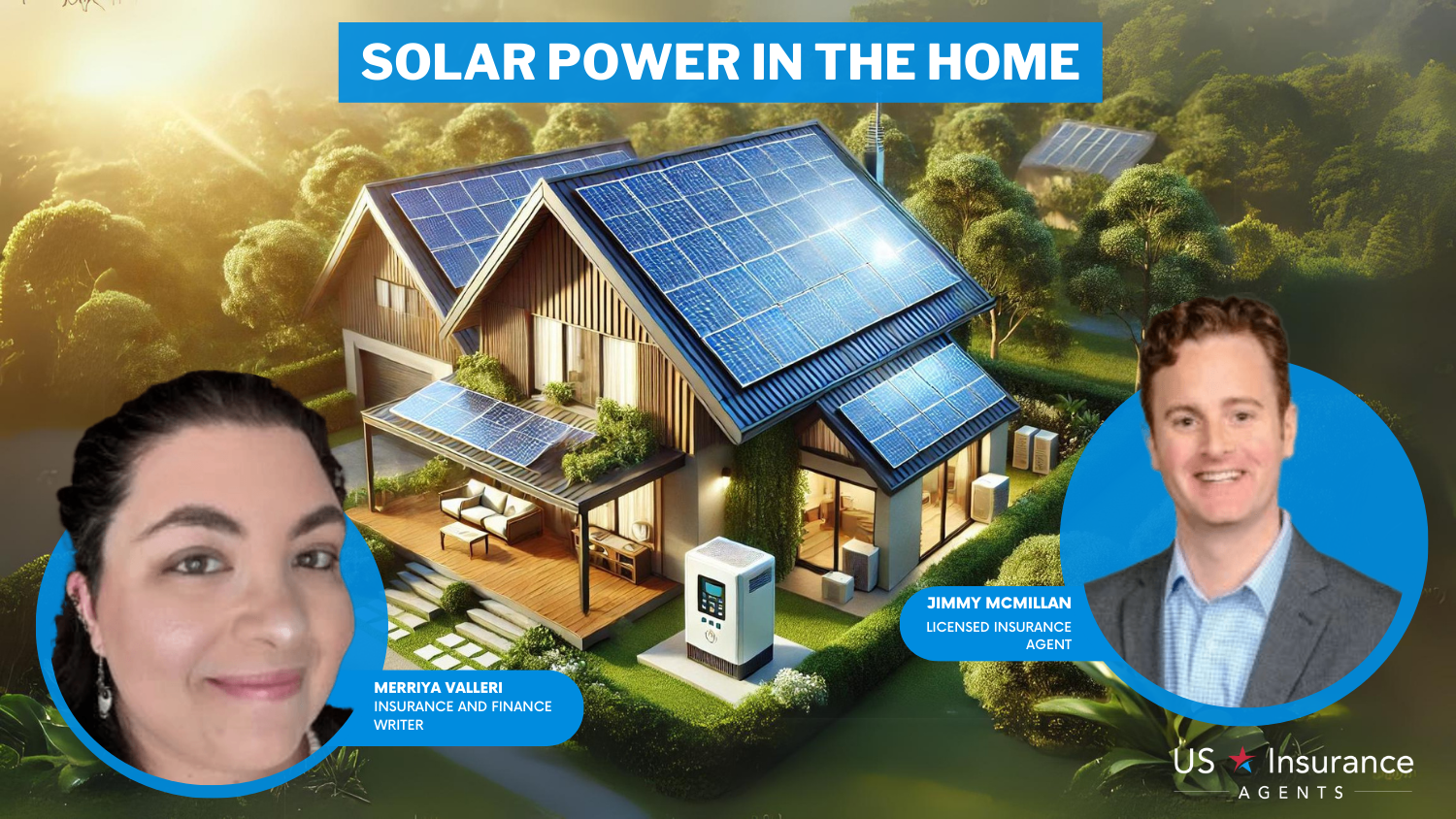
Frequently Asked Questions
What is solar power?
Solar power is a renewable energy source that converts sunlight into electricity. It is used to power homes, businesses, and other facilities.
How do solar panels work?
Solar panels are made up of photovoltaic cells that convert sunlight into electricity. The cells capture photons from the sun and cause electrons to separate from atoms, creating a flow of electricity.
What are the benefits of using solar power?
Solar power can reduce electricity bills, increase property value, and significantly reduce a household’s carbon footprint.
Are there different types of solar panels?
Yes, there are three primary types of solar panels available for home use: monocrystalline, polycrystalline, and thin-film.
Can I store energy from my solar panels?
Solar panels capture energy but do not store it for an extended period. To have a consistent amount of energy during the night or on days with limited sunlight, you will need to remain hooked into the power grid or install batteries along with your solar system.
Should I lease or buy solar panels?
Both leasing and buying solar panels have their benefits. Leasing requires little to no upfront cost but may have higher long-term costs. Buying solar panels requires a larger upfront cost but may save more money in the long run.
Does my homeowners insurance cover my solar panels?
Some homeowners insurance policies may cover solar panels, but it is not guaranteed. It is best to check with your insurance provider to see if solar panels are covered under your policy or if you need to add a rider to your policy to cover them.
Get a FREE Quote in Minutes
Insurance rates change constantly — we help you stay ahead by making it easy to compare top options and save.
